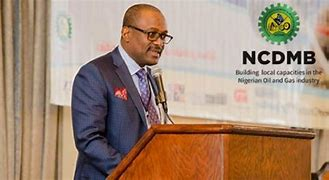It is my great honor and privilege to deliver this Welcome Keynote Address to you all at this 11th Edition of the Practical Nigerian Content Forum which kicked off yesterday with the Golf Tournament here in Uyo, Akwa Ibom State.
Let me start by expressing our profound gratitude to the Executive Governor of Akwa Ibom State and that of Bayelsa State for demonstrating the leadership qualities expected of their offices when this year’s event came under serious threat.
His Excellency, Governor Douye Diri showed genuine understanding when we had to take the tough but pragmatic decision to move the location of this year’s PNC event due to the unprecedented flooding of Bayelsa State.
We are consoled by the fact that the water levels have largely receded while efforts are ongoing by the state government and agencies of the Federal Government to ameliorate the damage done to infrastructure and restore normalcy to Yenagoa and the entire state.
We sought refuge in Uyo as the host city of this flagship event instead of outright cancellation or postponement and we are indeed delighted that His Excellency, Governor Udom Emmanuel accepted us with open arms.
Your Excellency, it is somewhat an uncanny coincidence that we are back in Uyo as the host city of this year’s edition of the Practical Nigerian Content.
This is because it was in this very hall, five (5) years ago in November 2017 that we launched our 10-year Strategy Roadmap aimed at increasing Nigerian Content in the oil and gas industry to 70% by the year 2027.
We had rolled out five (5) pillars and four (4) enablers to drive the focus areas under the roadmap, each supported with short, medium, and long-term initiatives.
We are now midway into the 10-year Strategic Roadmap and we are back here to provide feedback on the journey so far in our quest to deepen Nigerian Content in the Nigerian oil and gas industry.
Since 2018, our objective has always been to give status report of the various initiatives to industry stakeholders using the annual PNC Forum as a key platform. We are proud of the achievements realized in the last 5 years despite the general and specific challenges faced across the oil and gas industry locally and globally.
Since the launch of the roadmap 5 years ago, we have seen dramatic changes in the prices of crude oil and natural gas, a global pandemic, major oil & gas discoveries, , Russian-Ukraine war, the return to coal even in the mist of increased clamor for energy transition, run-away inflation, and many other development including the fact that the world population is now eight (8) billion with the attendant need to meet their energy requirements in one form of the other.
Near home, the country passed through 2 recessions, put in place the PIA (2021), Mr. President launched the Decade of Gas, commenced construction of Train-7, crippling oil theft phenomenon, closure of Nigerian land borders with neighboring countries, delayed vendor payments, new frontiers of oil and gas exploration and development, and two general election circles – the first in 2018/2019 and the second cycle is still unfolding as we speak.
In the opinion of the Board, these events have largely reaffirmed the need for local content practice in every nation using its comparative advantage and natural resources to the fullest. It also confirms the fact that the energy transition debate will be relegated to the back seat once the energy security of any of the developed countries is under threat.
It is gratifying that the push for Nigerian Content as envisaged in our 10-year Strategic Roadmap has continued to yield result in the last 5 years.
Out of the 96 initiatives under the strategic roadmap, we have completed 77 initiatives largely under the short and medium term categories as at November 2022.
Your Excellences and distinguished ladies and gentlemen, it is my pleasure to announce that the 2022 Nigerian Content level in the Nigerian oil and gas industry is 54% based our monitoring and evaluation of industry activities which bring the average in the last 5 years to 44% Nigerian Content level.
Once again, this performance is well above the minimum target OF 42% NC set for 2022 by the Board’s Project Management Office (PMO) just like we outperformed the 38% NC target set for 2021 by achieving 42% Nigerian Content.
The Roadmap Checkpoint Review carried out in 2020 had highlighted the need to deliver a minimum of 11% year-on-year growth rate if we are to achieve the 70% NC target by 2027.
Apart from the Year 2020, we have performed above target with year 2022 performance largely driven by the contracts awarded under the Train-7 project.
The top-3 performers of in-country spend in 2022 are Fabrication and Construction at 99% NC, Manpower at 81% NC, and Project Management at 80% NC.
The bottom-3 performers are Procurement at 34% NC, Engineering at 46% NC, and Services at 50% NC.
Behind these figures, the following are the highlights of our performance against promises in 2022 under the five (5) pillars of the Strategic Roadmap:
The technical operations data shows the capture of the following into the NOGIC-JQS in 2022: twelve (12) new operators to bring the total to 97; 1,303 service companies to bring the total to 9,537, and 22,512 individual registrations to bring the total to more than 271,000.
A total of 889 EQs were approved in 2022 while 179 EQs were rejected. The expatriate quota approval is trending down in the last five years.
A total of 178 NC Plans and 197 NC Compliance Certificates were approved in 2022. We have ensured increase in the involvement of Nigerian businesses in industry contracting process resulting in an increase of the percentage of the number of contract awards to Nigerian businesses from 79% in 2021 to 82% in 2022.
We are seeing increase in investors’ confidence in the industry resulting in new investments in structural steel fabrication and optical fiber cable manufacturing facility. There is deliberate inclusion of women owned companies and Project 100 companies in bidding for contracts to further diversify and deepen the supply chain development in the country.
We commenced the process of allocation of serviced plots to manufacturers to kick start operations within our NOGAPS industrial parks at Emeyal 1 Bayelsa State and Odukpani, Cross Rivers State.
A total of seventeen (17) applications have been received. One allocation letter has been issued for the fabrication and manufacturing of flanges, fittings, fasteners, and gaskets while ten (10) others have presented their proposals to Board and are conducting site visits.
Construction work is also ongoing at the other NOGAPS sites in Akwa Ibom, Imo, Delta, and Ondo states with Edo state being the newest addition to the list.
The importance of in-country manufacturing cannot be over-emphasized as our data show that procurement is the lowest performer and the lowest contributor to in-country spend in the last 5 years.
On Human Capacity Development, we have achieved the following:
a. Completed training of 50 graduates under the field ready initiative with. 35 of them offered employment
b. Completed and commissioned construction of 3 new workshops and equipping of 5 workshops at GCDC Bassambiri
c. Completed renovation and upgrade of STEM laboratories for the FSTC Tungbo.
d. Completed and commissioned installation of Internet Service Infrastructure for the NMU Okerenkoko.
e. Completed and commissioned construction of 3 workshops and 3 classrooms for the University of Ibadan.
f. 90% completion of upgrade of Youth Resource Centre, Bekwerra
g. Organized two sessions of business mentoring for Nigerian vendors. Over 1400 participants in attendance
h. PETAN Internship Program for 100 Nigerians with background in Petroleum, Electrical, Mechanical Engineering and Geosciences.
i. Rolled out Nigerian Content Policy on Procurement of PPE and bare line pipes
j. Commenced industry audit for Valves, Gaskets, Bolts and Nuts manufacturing in-country.
k. Training of over 7,000 youths in Bayelsa, Kano, Kaduna, Cross River, and Yobes states on GSM hardware repairs and software development
l. Completion of 70 ICT Centers in Secondary schools across the country.
Our partnerships are also yielding results. The 30MMscf Nedo gas processing plant and the 300MMscfd gas hub tied to the OB-3 pipeline in Kwale, Delta State were commissioned earlier this year in support of the ‘’Decade of Gas’’, initiative of the Federal Government.
The 2,500barrels/day Duport Modular Refinery and the 48,000 litres/day Base Oil production plant located in Omagwa Rivers State are mechanically completed and awaiting commissioning.
The 5,000bpd Waltersmith Modular Refinery continues to deliver best in class operations performance.
The summary of our commercial venture partnership is that we have a total of 16 partnerships of which four (4) are operational, two (2) are ready for commissioning, four (4) are under construction with FAT completed, two are recently approved, while the remaining four are finalizing debt transactions with financiers.
We have finalized the implementation strategy for the CDI component of the Brass Island Shipyard under the Train-7 CDI Project. Tendering have largely progressed to completion for award of contracts for land acquisition, site clearing, and commencement of FEED studies.
Forensic audit of the NCDF remittances in the period 2010 – 2017 have been largely completed with significant recoveries realized. While I commend the disposition of most of the operators and service companies to clean up their books, I implore those still stalling about close-out of the forensic audit exercise to do the needful to prevent imposition of regulatory sanctions.
Phase 2 of the forensic audit covering 2018 to 2021 commences in December 2022 with 20 Audit Firms already selected to carry out exercise
With respect to the 3rd pillar, Enabling Business Environment, we are pleased that our efforts were recognized and awarded the best MDA in the Ease of Doing Business Ranking released by the Presidential Enabling Business Environment Council (PEBEC).
It has been a remarkable journey moving from 27th position to the top position in 2022 which demonstrates what could be achieved with the right focus.
We continue to develop the capacity and capability of our staff via trainings and exposure and assignment to job roles that bring out commensurate talents.
We have been able to maintain 0 lost time due to industrial action as we continue to provide best in class work environment and tools.
We have made progress in the construction of crèche for our staff which will be completed and equipped next year.
Our collaborative engagements and peer support given to our brothers and sisters in African countries continued this year with peer assist of the Ugandan National Oil Company in Supply Chain Development modeled after Project-100. The collaboration has resulted in the signing of MoU with PETAN to enhance the growth of Ugandan oil and gas service providers.
We have further deepened the support we are giving to the Project-100 beneficiaries in the five intervention areas covering Access to Market, Capacity Building, Business Insights, Policy Interventions, and Research and Development. This year, three (3) Project 100 beneficiaries have been awarded NCDMB Guaranteed interest-free loans through intervention funds for remarkable improvements. In addition, P100 companies have accessed $10.6 million from NCDMB-NEXIM and NCDMB-BOI intervention funds.
Ladies and gentlemen, the next slides will highlight the progress made on the four enablers.
On Funding, our portfolio of Intervention Funds being managed by BOI and NEXIM Bank has grown to Five Hundred Million Dollars ($500 million) covering loans for asset acquisition, manufacturing, project finance, working capital, and women in oil and gas.
So far, the $300million NCIFund with BOI has been disbursed in full to more than sixty (60) businesses while about $15million application have been approved for disbursement under the NEXIM Bank products.
The products paper for the $50million NOGAPS Manufacturing Fund with BOI has been finalized and will be launched in January 2023 for qualified manufacturers to apply.
On the second Enabler, Regulatory Environment, we devoted the Nigerian Content Seminar at the last Nigerian Oil and Gas (NOG) event in Abuja to the gazetted seven (7) Ministerial Regulations.
It appears some industry stakeholders did not attend the NOG Seminar or bother to download the regulations from our website. For avoidance of doubt, the regulations are seven in number with the following titles as gazetted by the Federal Ministry of Justice and Office of the Attorney General of the Federation:
m. Regulation No.1 for Training in the Nigerian Oil and Gas Industry 2021 which made references to HCD Guidelines, the Training Plan, minimum standards for training, and sanction.
n. Regulation No.2 for the Further Growth of Indigenous Capacity 2021 to ensure full utilization of indigenous capacities, compliance waiver request management and the deployment of CDI’s as a tool for the growth of indigenous capacity.
o. Regulation No.3 is for Registration of Oil and Gas Professionals with Nigerian Professional Bodies 2021
p. Regulation No.4 is for the Establishment of Operations in Nigeria 2021 meant to fully involve the operators in the eradication importation of goods by jointly developing CDI’s to close identified gaps. It also stipulates procedure for securing tax and other fiscal incentives for compliant operators.
q. Regulation No5. For Nigerian Oil and Gas Industry Technology Transfer 2021
r. Regulation No.6 is for Nigerian Oil and Gas Research and Development 2021 which stipulates the power of the Board to supervise Research clusters and Centers of Excellence, partner for Research and Development, Implement Research findings, and funding of Research and Development.
s. Last but not the last is Regulation No.7 for Nigerian Oil and Gas Industry Enforcement and Compliance 2021: This Regulation provides for direct sanctions for breach, without the need to apply section 68 of the Act that would have required a criminal trial
I am delighted that one of the panel sessions is dedicated to this topic and I hope you will find it educative and informative.
With regards to Collaboration & Stakeholder Engagement, as promised, we have completed our scope of work within the PTDF Skills Acquisition Center at Omagwa in Port Harcourt as part of our collaboration with PTDF and Assa-North Gas Processing Company (AGPC).
We secured Mr. President’s approval to progress with the development of the Oloibiri Museum and Research Center in partnership with PTDF, SPDC, and Bayelsa State Government.
We also got the approval of the Federal Executive Council (FEC) to award contract for the construction of the 200-room NCDMB Conference Hostel adjacent to the Nigerian Content Tower in Yenagoa.
We signed the Insurance Guideline with NAICOM to strengthen compliance with the provision of the NOGICD Act and in particular Sections 49 and 50 with regards to companies carrying out insurance transactions in the Nigerian oil and gas industry.
With regards to Research and Statistics, our initiative on Commercialization of Research finding is making good progress as our partnership with Amal Technologies is set to commence production in 2023 of the smoke and gas detectors as well become the first fully commercial printed circuit board manufacturer in Sub-Saharan Africa.
Our Technology and Innovation Incubation Center, hosted within the Nigerian Content Tower in Yenagoa is active and we have released funds for prototype development and field trial support for some of the incubates admitted into the Center. As part of Institutional Strengthening and Collaboration, we recently joined others to inaugurate the Nigerian Chapter of the Triple Helix Association to explore ways of replicating in-country, the highly successful model for commercialization of research findings in Brazil.
We received almost 300 applications in our Call for Innovation out of which 50 have crossed the first round of screening. Twenty will be selected for incubation after selection by the Technical Advisory Board. It gladdens my heart that we have high response to the Call for Innovation which shows the level of interest in Research and Development within the country.
The Adopt a Faculty initiative to link academia, Government, and industry through deliberate interventions in the areas of infrastructure development, learning & knowledge exchange, alignment of curriculum to industry needs and research and development is also progressing well in six Universities selected across the country.
Ladies and Gentlemen, looking at the remaining initiatives outlined in our Strategic Roadmap in the next five years require focus and some heavy lifting. We need to sustain the gains we have made while also devoting time and resources to the long-term initiatives that are falling due.
The last five years have shown us the things we need to sustain, improve, or discontinue as we implement the remaining five (5) years of the roadmap.
One of the key learnings is that it is important to have a plan but is also vital to execute the plan. According to Richard Kovacevich, “Vision and strategy are not enough. The long-term key to success is execution each day, every day”.
We deliberately put in place a Project Management Office with champions assigned to drive each of the pillars and enablers.
We have an annual ritual to develop Board-level and functional scorecards to drive delivery of the Roadmap initiatives followed by quarterly reviews to track performance.
Another learning is that we need to improve on matching the available human and financial resources not only to deliver the plan but to also sustain the gains on a continuous basis. As we deliver growth in the level of Nigerian Content, so will the number of operators and service providers grow as can be seen in our data. There are also new states being recognized as oil producing states as well as other prospects which require our regulatory and developmental attention.
It is therefore important that as our projects, interventions, monitoring, certifications, and partnerships are growing and maturing across the country, we must put in place the right organization to manage the various dimensions of Nigerian Content regulation and development.
Let me add that if there are no projects sanctioned, there is no local content to practice.
As we move into the medium to long term initiatives under the roadmap, our focus will be on these few but very demanding deliverables:
t. Launch e-marketplace for industry procurements
u. Facilitate delivery of dry dock facility on the back of E&P projects
v. Deliver additional (4) NOGAPS Industrial Parks “Phase-2
w. Deliver in-country build of category-2 & category-3 Vessels
x. Expand Nigerian Oil and Gas Opportunity Fair (NOGOF) to cover identified linkage sectors
On a final note, I want to restate that we are very pragmatic in the implementation of the Act and the Ministerial Regulations. We are a Business Enabling Regulator and we don’t want to be on your Risk Register but rather place us in your Opportunities Register.
We do not however find it amusing that some companies or stakeholder groups find this approach as a means of belittling the Board or looking for ways to whittle down the powers of the Board. It is even absurd that some of the indigenous operators and service companies enabled and supported by the Board are at the forefront of overtly and covertly undermining the Board.
We want to put it on record that we are not helpless when it comes to implementation of the provisions of the NOGICD Act (2010). We have the full backing of the law and our principals in all the arms of government as the benefits of our mandate to create job and prosperity in-country should be obvious to discerning operators and service providers.
The exceptions could be individuals or businesses that take delight in worsening the poverty level in the land by perpetual preference for unbridled importation and single-sourcing to friends and cronies. We hope such people will have a rethink.
I cannot complete this address without once again stating my sincere gratitude to His Excellency, President Muhammadu Buhari GCFR for all the directives and pronouncements that have made these sterling achievements possible in the last five (5) years. Mr. President.
I recall when Mr. President closed our land borders between 2018 and 2019 to reduce smuggling in and out of Nigeria and encourage reliance on locally produced goods and services, little did we know that he was preparing the nation for pandemic-induced lockdowns.
I also remember all the Executive Orders, delivering the much-awaited Petroleum Industry Act, and approving the various memos we submitted to the Federal Executive Council. As you wind-down your administration, it is on record that your tenure has resulted in record breaking performance of Nigerian Content in the oil and gas industry.
Special Appreciation as well to my immediate boss and Chairman of the NCDMB Governing Council, Chief Timipre Sylva and members of the Governing Council for all the support and approvals granted to us. The entire staff and management of the Board appreciate your leadership and we pray for more wisdom in all your dealings and decisions.
Ladies and gentlemen, let me use this moment to express my gratitude to the various stakeholders in the National Assembly, operators, service providers, members of the OPTS, PETAN, OGTAN, sister agencies, civil society organizations, the media and several others for the support provided to the Board in the last five years.
Special mention to PCTS for the donation to the Board earlier this year in support of innovation, research and development. I cannot recall when last we got a donation from any stakeholder groups even though the Act makes provision for this. Thank you all for your attention and I wish you all a rewarding event.
*Being excerpts of the keynote address delivered by the Executive Secretary, Nigerian Content Development and Monitoring Board (NCDMB), Mr. Simbi Wabote at the ongoing 11th edition of the Practical Nigerian Content (PNC) forum with the theme “Deepening Nigerian Content Opportunities in the Decade of Gas” in Uyo, Akwa Ibom State.











